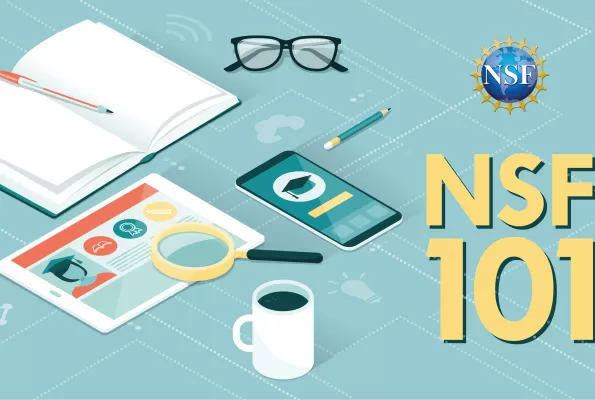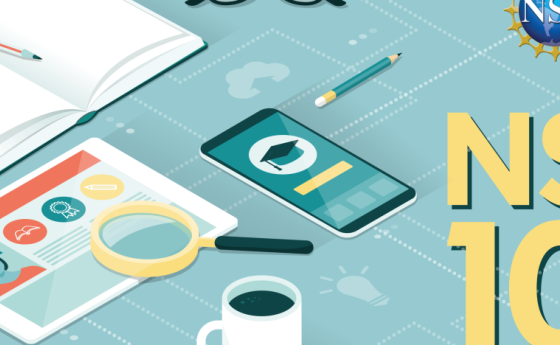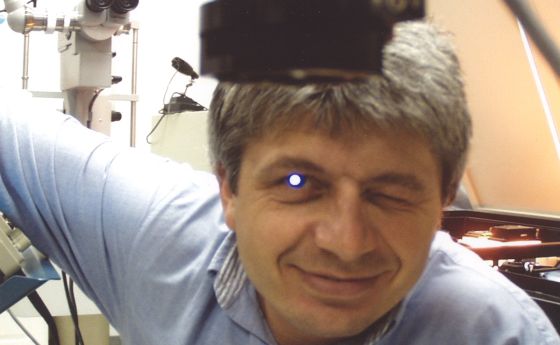
NSF 101: Four tips for applying to NSF’s CAREER program
You banked years of late nights in the lab crunching data and grading papers. You successfully defended your dissertation, maybe completed a postdoc, and applied to every single faculty job you could find. And finally, you did it! You’re now a professor ready for the next big step in advancing your career.
Each of NSF’s disciplinary research programs offer funding opportunities specifically for individuals who are early in their research and teaching career, otherwise referred to as "new investigators." The Faculty Early Career Development (CAREER) program is one of many NSF funding opportunities for new investigators and provides stable support for those who are committed to both outstanding research and education.
Here are four tips from a CAREER program director to help applicants build successful proposals:
1. Do your homework
- Take your time when you read the CAREER solicitation. It contains important details about who is eligible (assistant professor or equivalent rank), institutional support and proposal specifics.
- Re-watch the CAREER webinar, read the FAQs to avoid potential pitfalls, and check out previously funded CAREER awards to get a feel for the type of work that gets funded.
- Lean on your network. Discuss your CAREER ideas with your mentors and colleagues. Then, focus those ideas into a tight, one-page proposal summary and get feedback, especially from those who have previously received a CAREER award. Also, check with your professional scientific society for resources that you might draw on.
2. Know the timelines
- The NSF-wide CAREER submission deadline is usually the fourth Monday in July (confirm on the website. NOTE: For 2020 the deadline has been extended to Aug. 11, but eligibility is still tied to the original July 27 deadline. More information is on the website). If your university has a sponsored research office, they may have much earlier internal deadlines. Mapping out all the relevant deadlines will help you understand and organize your work process.
- Give yourself time and space to craft a compelling CAREER proposal well in advance of your deadline. This will allow your support system ample time to review your work and offer feedback. Remember that you’ll also need to leave yourself time to incorporate any feedback you receive into your proposal. The program solicitation has a suggested proposal timeline in Section V.
3. Is it a good fit?
- A CAREER award is significant work, so ask yourself if this is a good time to apply. You might need to apply more than once; you are allowed three total attempts at submission. Only you can determine if you are at the right time in your career.
- Your proposal needs to align with the goals of the CAREER program. Competitive proposals thoughtfully lay out a plan that integrates education and research. Are you prepared to commit equally to these goals?
- NSF funds many different disciplines and research areas. Identify which division and program is the best fit for your proposal. You can research past awards to see what has been funded to get an idea.
4. Reach out to CAREER contacts
- Reach out to the CAREER program contacts for help identifying the right program for your application. They can also direct you to a program officer associated with that program who can help answer questions.
- Program officers love talking about science and engineering and really do want to help. You can send them your one-page proposal summary and the program officer can tell you if the proposal fits within their program.
- Program officers are happy to help, but their job is to conduct fair merit review. Please don’t ask them to edit your proposal, suggest which topic you should choose, or explain how to design your study. And please, don’t ask them to fund your proposal.
- Please don’t be discouraged if you don’t receive an immediate response. Program officers receive many emails and phone calls, so they appreciate your patience.
Crafting and submitting a CAREER award proposal is a big undertaking. It is a competitive program so don’t be disheartened if you aren’t awarded on the first try. Take the feedback you receive and hone your application for the next try. And remember, your hard work and dedication has gotten you this far. Good luck!





